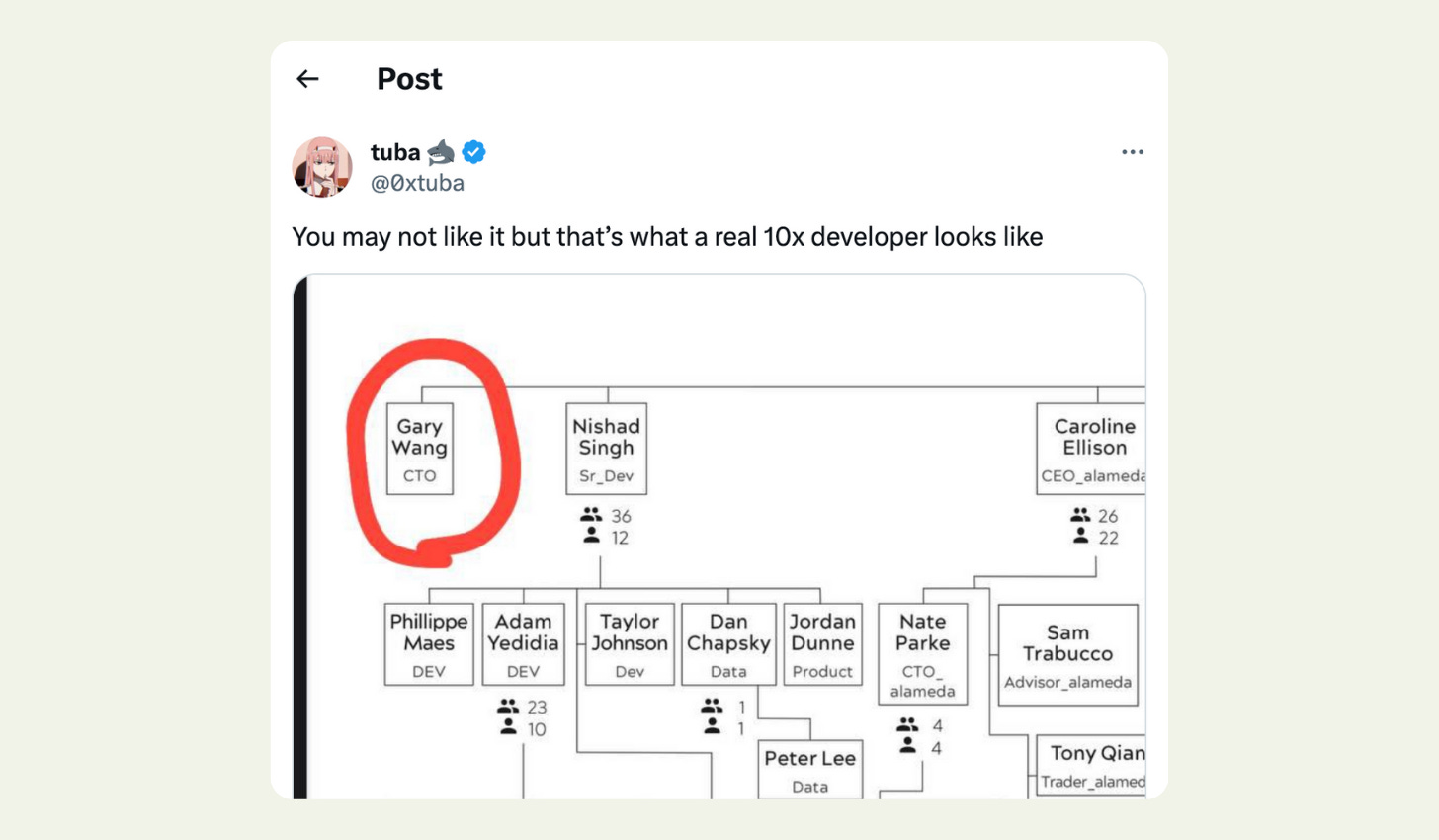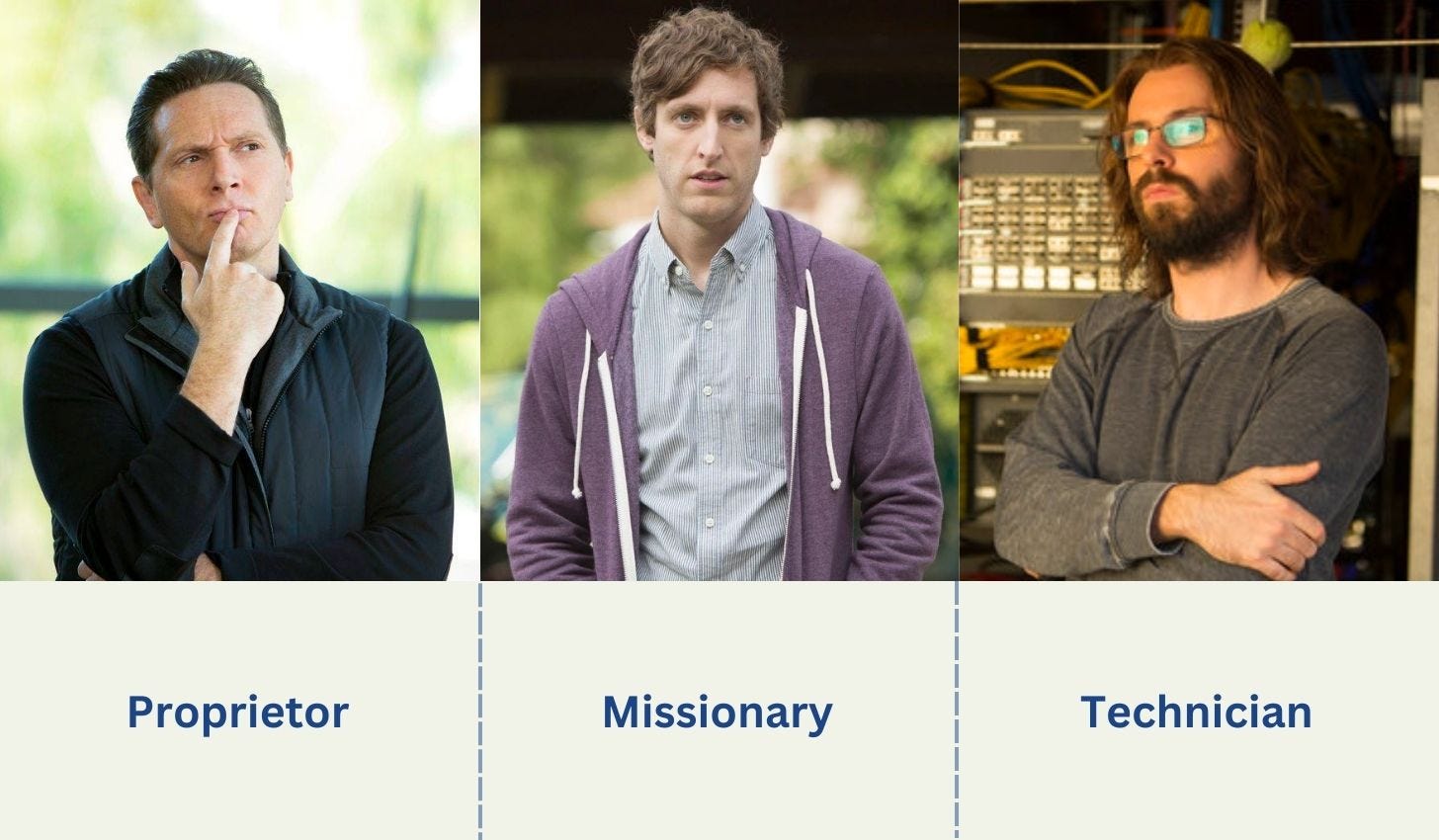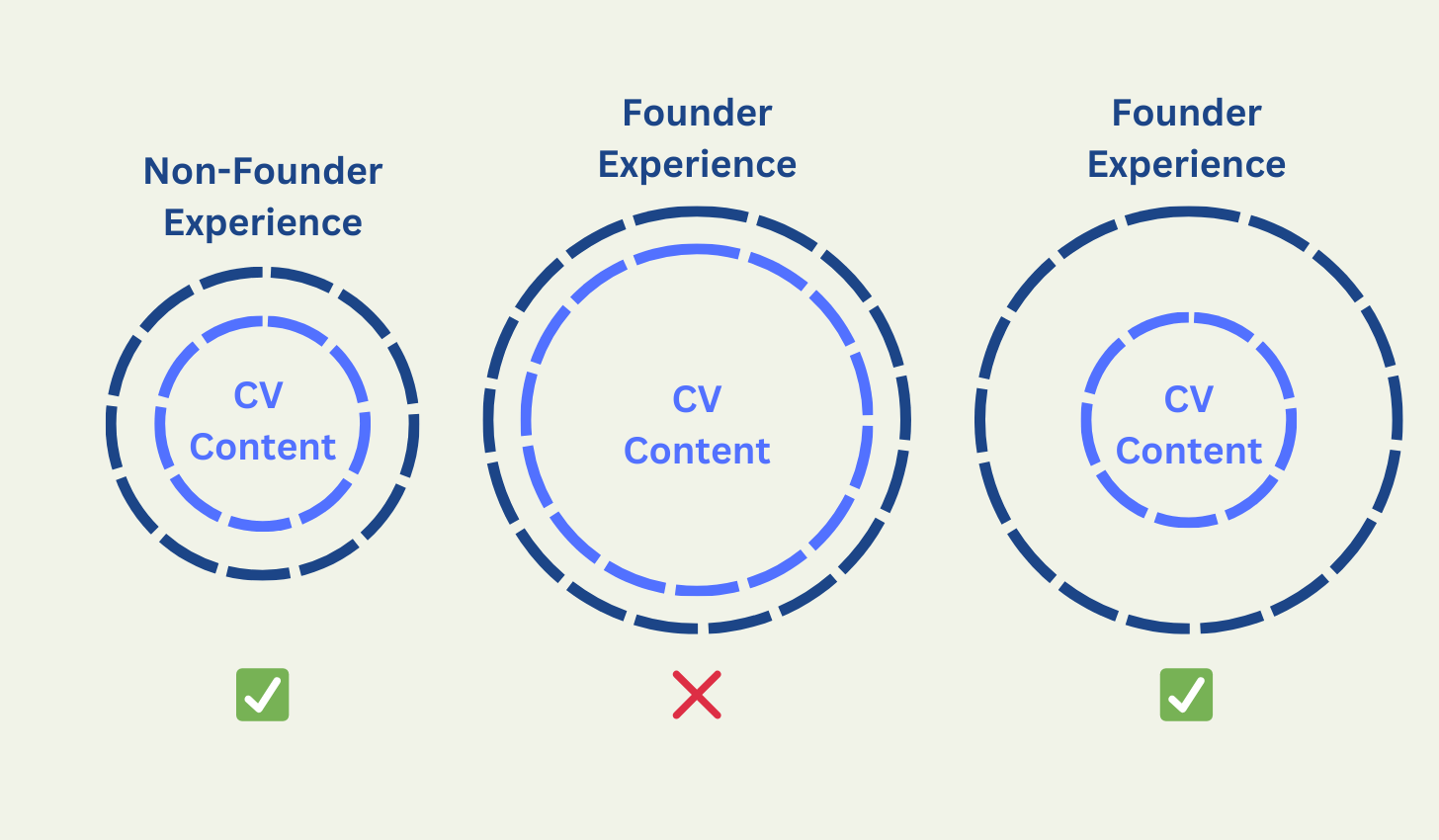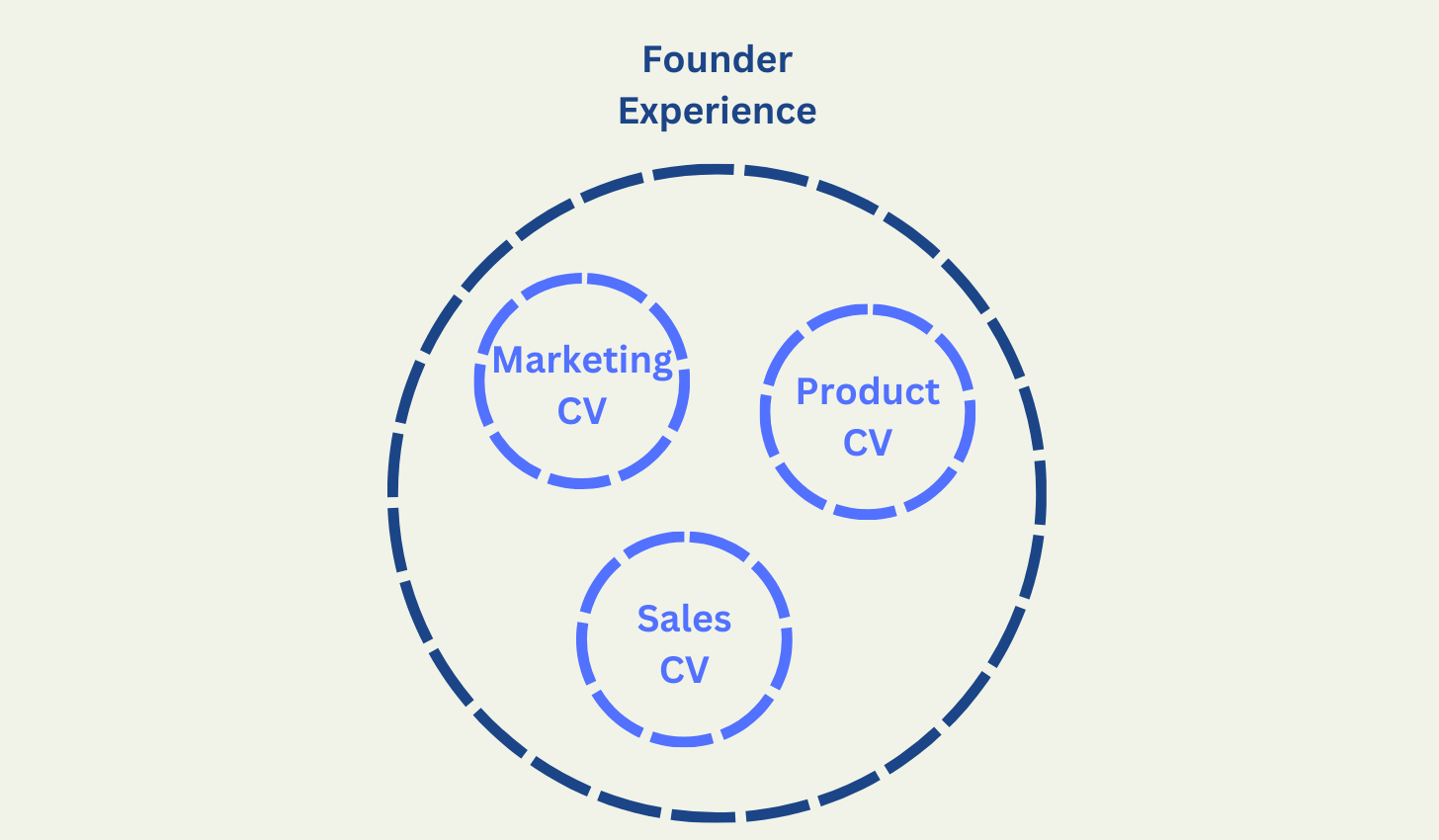From Entrepreneur to Employee
Getting a job as a founder is daunting. Advice for hiring managers, recruiters and job seekers during the transition to traditional employment.
I’ve spent the last 10 years co-founding and running two fintech startups. After finding an acquirer for Coconut at the start of 2023, I’ve decided to seek conventional employment.
Like many other founders I’ve spoken with, the prospect of moving into traditional employment is pretty daunting. Will companies be looking for more conventional backgrounds? What level should I even be applying for? Do my skills translate? And will employers see that?
For me, the time is right. I’ve learned a huge amount about innovation, team building, scaling and management. I’m now looking to join a place where what I’ve learned can contribute towards the mission of a more established company, and help move the world forward in some way in the short time that I’m on this earth.
Over the last few months I’ve spoken with dozens of potential hirers and founders and discovered that the journey from founder to employee is not straightforward.
In this post, I’ll share why I think founders can get overlooked as potential star hires, and try to give some practical advice to hiring managers and recruiters when assessing former founder candidates, as well as tips for founders that are looking for roles.
It’s polarising
In my experience on this journey is that I’ve had two reactions when speaking with companies and applying for roles:
Admiration
For some organisations, the experience is highly valued - sought after, even. These are generally either scaleups with a culture that embraces entrepreneurship or founder-led organisations.
It takes a lot to start something from scratch. Founders need courage and conviction, and the journey builds resilience and develops mature judgement.
And on the other hand…
Fear
For more traditional organisations, but also some scaleups, founders can trigger an almost fight or flight response. Especially organisations that are past the stage of being founder-led.
I believe this is driven simply by unfamiliarity.
Founders are uncommon, since most people don’t start businesses. I don’t know the exact statistics but if you’re recruiting for a product manager role for example, at a guess maybe 1 in 20 CVs have ‘founder’ in the job history.
Since they’re a small population, it makes it really difficult for hiring managers and recruiters to know what to do with them. They likely did not match the brief that was imagined when thinking about the role requirements. It’s simply easier to review the other 19 CVs.
Also, the prevailing image of a founder probably isn’t someone you’d want working for you. Elon Musk, Steve Jobs, Mark Zuckerberg. Obviously these aren’t representative, but maybe this is the image that comes to mind for some when they see ‘founder’ in the job history?
Founders often don't fit the conventional mould. They’re misfits, taking the path less trodden, making them unpredictable in the eyes of hiring managers. Better to stick to someone with a conventional background, right?
The trough of despair
I’ve spoken with some founders who have had a really tough time trying to transition from founder to employee. Here’s one such story by Ted Skyba who made over 1000 applications in his search for a role after building his business to a $250m valuation.
“No one from more than 1000 companies recognised in me the person every founder is looking for — the one who will treat business like their own.”
I’ve spoken with other founders who feel like the deck is stacked against them when looking to transition into traditional employment. Some give up entirely, going back into entrepreneurship out of perceived necessity rather than choice.
But there’s hope
Reassuringly, I have met several former founders over the last few months that found gainful employment.
They all experienced a lot of the same challenges, but they all found ways to overcome them, and to leverage their startup experience as an asset that was relatable to the employer.
I’ll share what I’ve learned from them and how I’ve approached my own search. But first, here’s advice for recruiters and hiring managers that get a founder CV in their pile of applications.
Advice for Hiring Managers + Recruiters
Seek to understand
The first hurdle is to understand what being a founder is, and what motivates the candidate. There are a few frameworks to categorise founders into archetypes that focus more on job roles than motivations. The Hipster, Hacker and Hustler classic for example.
But what’s most interesting is what drives them. What’s their passion and motivation? Why did they have the burning need to start a startup? And how might that burning desire translate into working with you?
I’ve had a go at defining 3 common motivators that drive people to become a startup founder:
Proprietors
Stubborn, Forever Founder, Autocratic
I’ve stolen the term from here, but this describes what I think is often the caricature of the entrepreneur. The one that simply would never work for someone else.
Kevin O'Leary from Shark Tank stands out as an example here. He lasted 5 minutes in employment before vowing never to work for someone else:
"I realised then that when you work for somebody else, you're basically their slave. From that day on I swore I'd never work for anyone else. That was the beginning of my journey.”
I think these are pretty rare, maybe 5% of founders, but they are disproportionately represented in coverage so it feels like there are more of them.
They’re not going to submit a job application to work at your company, so don’t worry about them.
Missionaries
Passionate, Ambitious, Courageous
These founders are driven by a cause. They're a great fit if they believe in your company's mission.
This is most founders. Driven by purpose, optimism, ambition, and the desire to have an impact on the world.
I’d put myself in this camp. My co-founder of 10 years, Sam, too.
I would hazard a guess that most founder job applications you receive are from this type of person - they’ll simply be looking for a new mission and purpose to pursue with the same passion they once through at their own startup.
Technician
Exceptional, Craftsperson, Superhero
I don’t want to suggest that we should take too many learnings from FTX’s corporate structure, but a Technician is a lesser seen founder that is simply an incredibly talented specialist in their field.

These founders are less common since they are more specialist than generalist, and generalism is the muscle you see in most founders.
These 10x types might excel in senior individual contributor roles rather than management positions.
Diversity of Experience
It’s an unfortunate byproduct of human nature that we like to associate ourselves with people who look like, think like and act like ourselves. Diversity initiatives help to correct for this by promoting diversity across gender, race and background.
Overlooking founders because of non-traditional job histories I believe is a missed opportunity to create diversity of experiences within organisations.
Job applications will often be filtered at the start of the process by looking for traditional role progression - consider instead throwing in some founder CVs in there too that don’t fit the mould. You may be pleasantly surprised.
Dig deep
Understand their motivations and passions. Understand what their unique experience is and what they’ve learned from it. Don’t pigeonhole them (yes, I know I literally explained a founder pigeonholing framework about 2 seconds ago).
Drive into gaps and weaknesses - chances are they will be pretty self-aware.
You may have to go off script from your usual line of questions.
A friend of mine put it like this:
“If you’re not considering founders, you’re going to miss some unbelievable people. Have an approach for unconventional CVs.”
Advice for Founders on the Job Hunt
All that said - it’s incumbent on the job seeker to do the work. I know I’m influential, but chances are this post won’t reach everyone it needs to. So here’s my advice on seeking work as a founder that’s recently handed in their badge and gun.
Find Your Box
When I started my first startup in 2012 after leaving the corporate world, I discovered what product management was, fell in love with it, and decided that I was going to position myself in that track. Having wrapped up as CPO at Coconut, I’ve found it fairly easy to go for product roles.
Prospective hirers definitely raised the fact that ‘My CV looks different to other product managers/leaders’. But it was close enough to be considered alongside them.
However, speaking with other founders, they completed their founder journey in a more ‘generalist’ position. Should they become a Marketer? BizDev? Sales? Product?
I think this is part of the challenge that Ted Skyba had. You can’t market yourself as a swiss army knife when companies are looking to hire a stanley knife.
Ultimately it’s a positioning exercise. What does the customer/employer want, and how do I communicate my profile in a way that fits with that. This will probably mean leaving loads of good stuff out. Since you’ll have a ton of experience that simply doesn’t match up to the job requirement for what you’re going after.
Focus on your strengths. But with a founder flavouring to them that adds something special.
This might mean tailoring multiple CVs for different roles.
If you do this then you will have to make sure your LinkedIn profile somehow works with it. I didn’t have to do this myself so my advice stops there.
I started off with a simple 1 pager CV for the first couple of months of my search. This gave me time to figure out exactly what people were looking for, which meant when I came to do it, I could do it well. That said - I should have made my CV sooner.
I was over-reliant on my personal connections, warm intros and company reputation. But then this didn’t carry over once my CV got cold forwarded internally. I think I lost out on some opportunities as a result.
Know What You Want
The founder background is already making people’s flight or fight brains trigger - don’t add to it by also introducing uncertainty in what you’re looking for.
I had a clear thesis of what I was looking for that I arrived at in the first few weeks of my search. It was also sufficiently broad to keep enough opportunities open to me.
Looking for a product role within fintech, series B to corporate, in early stage businesses or new or early stage products within a product portfolio.
This fit in with my startup background so that I could sell that experience as a plus, probably outperforming candidates that had more traditional backgrounds. That was my thesis at least.
It’s hard for everyone
“No one gets back to my job applications because I’m a founder”. I think this is wrong.
Speaking with non-founders they have exactly the same experience as founders when it comes to the job application process. Ghosting is commonplace, automated rejection emails if you’re lucky.
Don’t be downbeat thinking that you’re not getting bites since you’re a founder. It’s tough out there for everyone looking for a new role. It takes work and time.
Here’s my funnel
I think my funnel stats are useful for founders looking to embark on the process, here’s mine. Obviously everyone’s journey is going to be different.
I had ~100 meetings with prospective employers, recruiters and potential introducers over 4 months. One of those months was August which was pretty dead. I’d expected the process to take 3-6 months based on conversations with other founders.
I submitted my CV against 14 job applications. I opted for leveraging my personal contacts and networking on LinkedIn over submitting cold job applications, since the hit rate is so low (expect ~1% for cold applications).
Of my 14 job applications, 7 of those were cold - I did a few just to test the theory that they don’t really work. That said, 1 did lead to interview, but it landed on the desk of someone I knew. The rest I received no response or auto-rejection.
The remaining 7 warm ones were through personal connections and networking. 3 of those led to formal interview processes, the other 4 I had initial conversations but timing wasn’t right for one reason or another.
I went through 4 formal interview processes in total.
I got 1 job offer. I took it.
(I got an offer halfway through writing this - in case you’ve noticed the tone change, that’s why!)
I think I got incredibly lucky to have the conversion rate on interview to offer that I did - I’d been advised by recruiters to expect to be doing several interviews per week.
I avoided doing lots of applications to companies I couldn’t see myself being passionate about working with. A downside of this was limited interview practice. I had to prepare well to counter this, researching interviewers thoroughly and scripting out my ‘stories’ to use in response to ‘tell us about a time when’ questions.
Everyone asks these 2 questions
1. Why aren't you starting another company?
2. Can you work under someone?
Be ready with your answers. It’s a chance to sell yourself, and also educate them on founder misconceptions.
For me - I started companies because I want to have an impact. I believe my best way to continue doing that is to join an org that’s doing something exciting, where my entrepreneurial experience can have a disproportionate impact.
And for 2 - running a startup does not make you unaccountable to others. We had a board of directors, we had investors. We had a team that we were accountable to - leading them with influence rather than absolute authority. Running a startup requires collaboration just like any other job.
Find your sponsor
Given the ‘some people get it some people don’t’ dynamic with the founder background, it’s important to win over a sponsor, usually the hiring manager.
This isn’t really founder specific advice. But the chance of there being someone with influence over the decision who’d prefer making a more traditional hire increases the overall risk of their being a voice of descent in the process.
It’ll ultimately be up to the sponsor to make the call and push on your behalf, so clearly addressing any concerns surrounding that up front should help with that.
This doesn’t always work. Some companies’ hiring processes allow for sponsors to influence the outcome more than others.
===
I hope this post helps to give a few more of the unconventional adventurers that are startup founders a shot at getting amazing roles in ambitious companies. Any questions or comments feel free to hit me up on LinkedIn.





🎯🎯